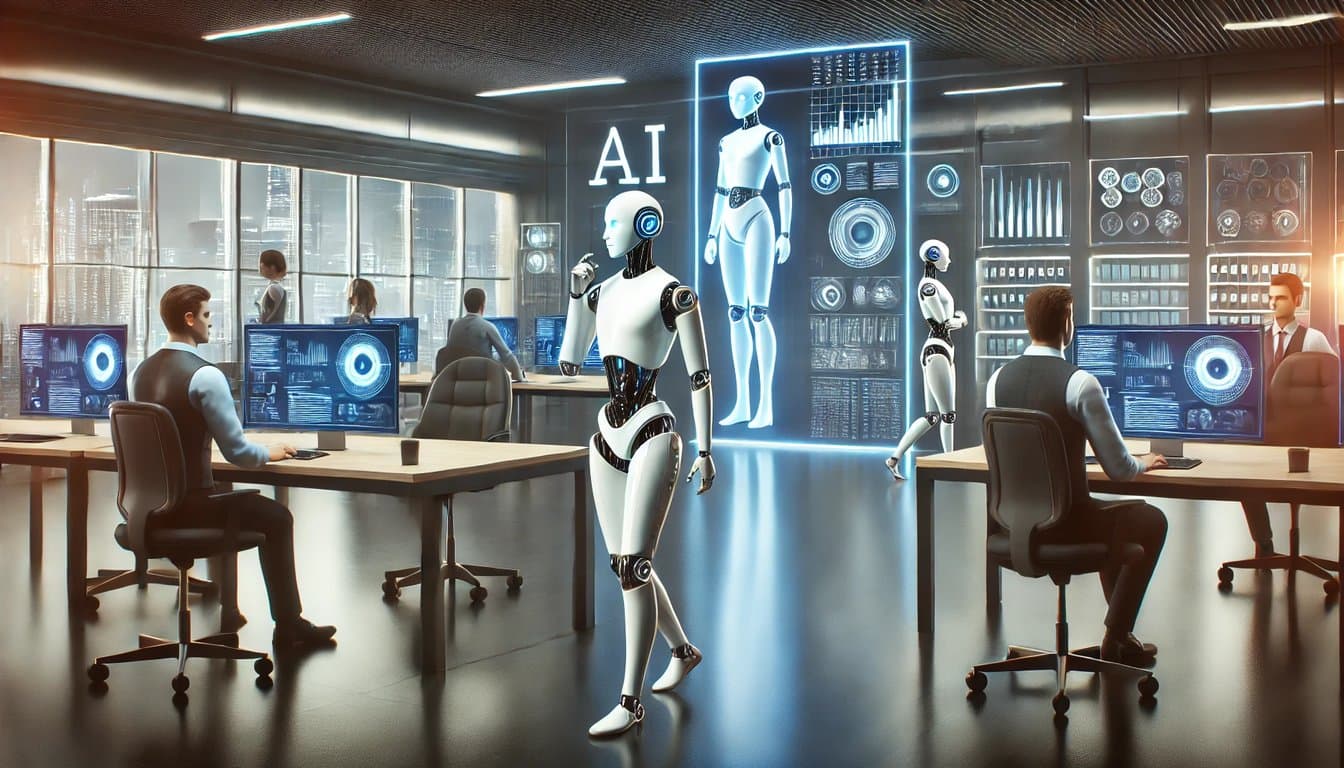
In an era where artificial intelligence (AI) is reshaping industries at an unprecedented pace, the job market is undergoing a significant transformation. The traditional emphasis on academic degrees is giving way to a more nuanced, skills-based approach to hiring. This shift presents both exciting opportunities and notable challenges for employers, job seekers, and the broader economy.
The Rise of Skills-Based Hiring
The concept of skills-based hiring is gaining traction across various industries. This approach focuses on a candidate's specific abilities and competencies rather than solely on their educational background. But why is this shift occurring, and what are its potential benefits?
Widening the Talent Pool
One of the primary advantages of skills-based hiring is its potential to broaden the talent pool. By looking beyond traditional credentials, employers can tap into a more diverse range of candidates. This approach is particularly valuable in today's rapidly evolving job market, where the skills needed for success are constantly changing.
As noted by industry experts, this shift allows organizations to:
Identify candidates with the exact skills required for specific roles
Improve diversity and inclusion in hiring practices
Contribute to long-term workforce development
Fostering Economic Growth and Social Mobility
Skills-based hiring isn't just beneficial for employers; it also has the potential to drive broader economic and social change. By providing opportunities to individuals who may not have traditional educational backgrounds, this approach can:
Boost economic growth by utilizing untapped talent
Enhance social mobility by creating pathways to high-paying jobs for a wider range of individuals
Encourage continuous learning and skill development throughout one's career
Challenges in Implementing Skills-Based Hiring
While the benefits of skills-based hiring are clear, the transition to this new model is not without its challenges. Let's explore some of the hurdles that organizations face in adopting this approach.
Overcoming Traditional Hiring Practices
Many hiring managers and HR systems are still deeply rooted in traditional hiring practices that prioritize degrees and conventional resumes. Shifting to a skills-based model requires a significant change in mindset and processes. This includes:
Developing new methods to assess and validate candidates' abilities
Addressing unconscious biases that may favor traditional credentials
Creating job descriptions that accurately reflect the skills needed for success
Quantifying Soft Skills
While technical skills are often easier to measure, soft skills like leadership, creativity, and adaptability are increasingly valued in the modern workplace. However, these skills can be challenging to quantify and assess objectively. Organizations must develop innovative ways to evaluate these crucial competencies effectively.
Bridging the Gap Between Training and Employment
Even when individuals acquire new skills, translating those skills into job placements can be challenging. For example, the Burning Glass Institute found that for every 100 job openings that removed degree requirements, fewer than four more non-degreed workers were hired. This suggests that removing degree requirements alone is not sufficient to ensure more diverse or inclusive hiring.
Similarly, initiatives like San Antonio's Ready to Work program have shown that intensive job training doesn't always lead to immediate employment. Less than 50% of program participants were placed in jobs within six months, highlighting the complexity of aligning skills development with actual job market needs.
The Role of AI in Reshaping Hiring Practices
While AI is driving the need for new skills in many industries, it's also providing powerful tools to implement skills-based hiring more effectively. Here are some ways AI is transforming the hiring landscape:
Skill Identification and Categorization
AI algorithms can analyze job descriptions, industry trends, and company data to identify and categorize the skills needed for various roles. This helps organizations create more accurate and comprehensive skill profiles for each position.
Improved Candidate Matching
AI-powered matching systems can go beyond keyword matching in resumes to identify candidates with the right combination of skills for a particular role. These systems can consider a wide range of factors, including:
Technical skills
Soft skills
Work experience
Project portfolios
Online certifications and courses
Personalized Learning and Development
AI can power adaptive learning platforms that help employees acquire new skills tailored to their career goals and their organization's needs. This supports the ongoing skill development necessary in a rapidly evolving job market.
The Future of Work: Trends and Predictions
As we look ahead, several trends are likely to shape the continued evolution of the job market:
Continuous Learning: The emphasis will shift from one-time degree acquisition to lifelong learning and skill development.
New Certification Models: Digital badges, micro-credentials, and other alternative forms of skill certification may gain prominence alongside or in place of traditional degrees.
Fluid Career Paths: Career progression may become more based on skill acquisition rather than time spent in a particular role.
AI Collaboration Skills: The ability to work effectively alongside AI systems will become increasingly valuable across industries.
Focus on Human-Centric Skills: As AI takes over more routine tasks, human workers will need to focus on areas where they can add unique value, such as complex problem-solving, creativity, and emotional intelligence.
The Impact on Graduate Recruitment
The shift towards skills-based hiring is already having a significant impact on graduate recruitment. Recent data from the UK provides a stark illustration of the changing landscape:
Graduate job applications have surged, with employers receiving an average of 140 applications per vacancy in 2024, a 59% increase from 2023.
The use of AI in the application process has contributed to this surge, making it easier for candidates to apply to multiple positions quickly.
Graduate vacancies are growing at a slower rate, with only a 4% increase in the past year compared to 6% the previous year.
Certain sectors, such as IT and consulting, have seen significant declines in graduate hiring, with a 35% drop in the digital and IT sector.
These trends highlight the increasing competition in the graduate job market and the need for job seekers to differentiate themselves through their skills and experiences rather than relying solely on their degrees.
Conclusion: Embracing the Skills-Based Future
The shift towards skills-based hiring, driven and facilitated by AI, represents a significant opportunity to create a more dynamic, inclusive, and adaptable workforce. However, realizing this potential requires concerted effort from employers, educational institutions, policymakers, and job seekers alike.
For employers, embracing skills-based hiring means rethinking traditional recruitment processes and investing in new assessment tools and training programs. For job seekers, it underscores the importance of continuous learning and the ability to clearly demonstrate and articulate their skills.
Educational institutions must adapt their curricula to better align with the evolving needs of the job market, while policymakers can support this transition through initiatives that promote skill development and recognition.
As we navigate this transition, it's crucial to remember that the goal is not just to fill job openings but to build a workforce that is resilient, adaptable, and prepared for the challenges and opportunities of the AI-driven future. By focusing on skills and embracing the potential of AI in the hiring process, we can create a more equitable and dynamic job market that benefits individuals, organizations, and society as a whole.
Reference
https://www.404media.co/i-applied-to-2-843-roles-the-rise-of-ai-powered-job-application-bots/
https://www.dailymail.co.uk/news/article-13869105/warning-artificial-intelligence-replace-tech-jobs-layoffs.html
https://www.forbes.com/sites/karadennison/2024/10/14/how-ai-and-skills-based-hiring-are-reshaping-the-job-market/
https://www.ft.com/content/99435752-ac15-44de-8dd6-79467c277611



